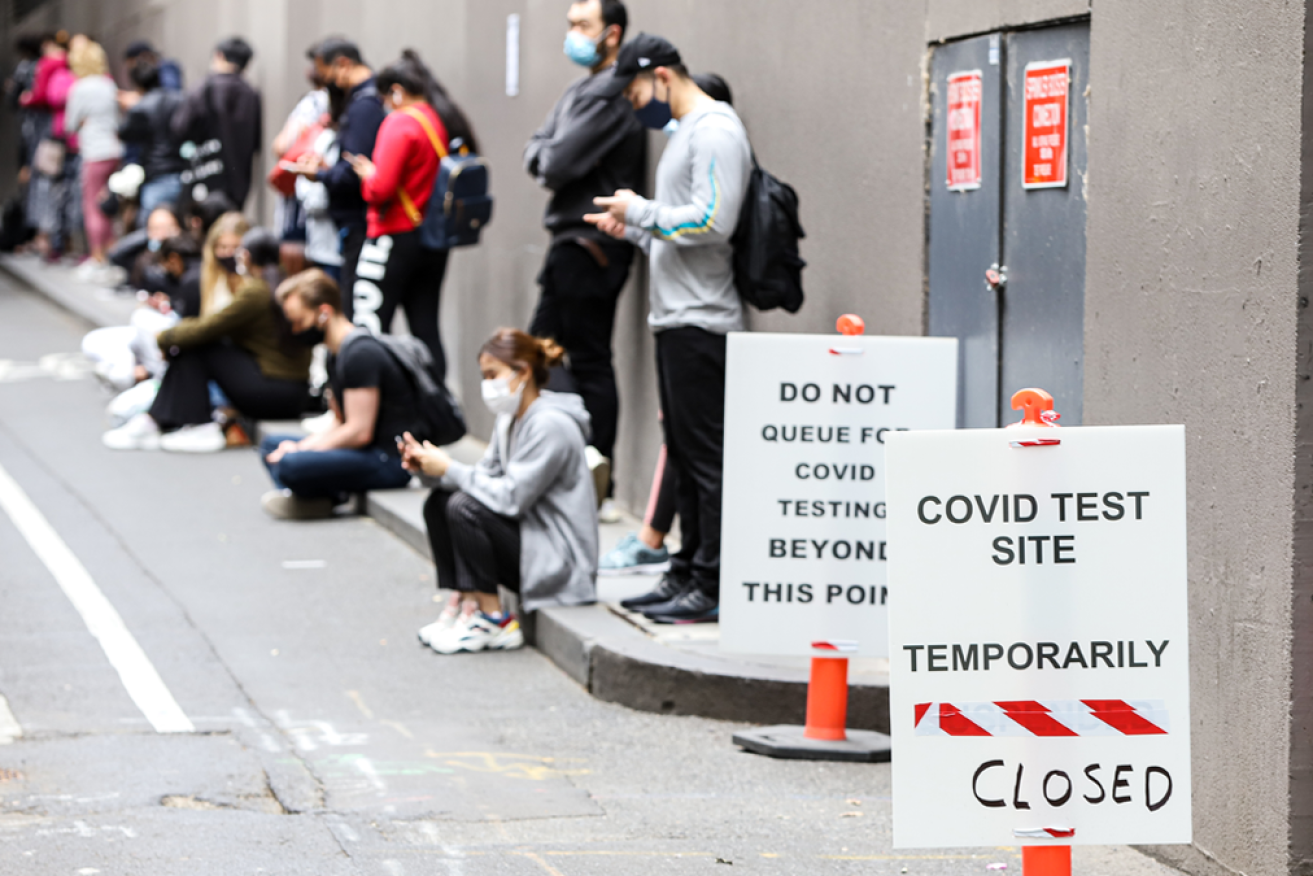New research points to Omicron being less severe, but that’s only half the story


New research points to Omicron being less severe, but it still threatens to overload Australia's healthcare system. Photo: Getty
A new study has added weight to growing evidence that Omicron may be less severe than other variants, with the latest finding that people are up to 70 per cent less likely to require hospital care.
The analysis of all Omicron and Delta cases in the UK from the start of November was released overnight Thursday by the UK Health Security Agency.
The report shows people are 31 to 45 per cent less likely to go to the emergency department and 50 to 70 less likely to be admitted to hospital for treatment.
But the benefit of a milder variant could be cancelled out by larger numbers catching the more transmissible virus which would pose an immediate threat to healthcare systems.
The latest study comes on the heels of research from South Africa’s National Institute for Communicable Diseases which found people who tested positive to Omicron in October and November were 80 per cent less likely to be hospitalised compared to Delta patients.
But those results were somewhat expected, with Omicron patients skewing younger compared to earlier strains and people being reinfected who had some level of immunity from previous infections.
Separate research from the UK’s Imperial College London also found Omicron was less likely to lead to severe illness compared to Delta, even after accounting for factors like age, sex, underlying health conditions, vaccination status and prior infection.
On Thursday afternoon, NSW chief health officer Dr Kerry Chant said the combined evidence from overseas and emerging data in Australia indicated the risk of hospitalisation was about 60 per cent to 80 per cent less than with Delta.
The growing findings come as a surge in NSW attributed to Omicron has already begun to put a strain on the health system, with infected staff forced to isolate, prompting the Premier to perform a backflip on mask rules and QR check-ins to slow down the spread.
Although hospitalisations – and ICU stays in particular – have only increased marginally in comparison to cases, the number of people winding up in hospital may continue to climb, even if they’re a relatively small percentage of all COVID cases.
Tweet from @NickEvershed
Epidemiological modelling expert Associate Professor James Trauer warned it was possible to have a more severe epidemic with a less severe variant.
“Because when we say less severe, it’s less severe at the individual level, but it could well mean that there’s so many more cases that we see very high pressure on our healthcare system,” the head of Monash University’s Epidemiological Modelling Unit told The New Daily.
This concern has also been stressed by British researchers.
Although a less severe strain could be good news in the long term, in the short term the focus is on transmission.
Bringing back restrictions
Associate Professor Trauer said that while everyone is keen to move away from lockdowns, now is not the time to abandon restrictions altogether.
He called for a co-ordinated national approach.
“There’s so much political capital invested in making the decisions we’ve been making at the moment, there’s been so much negotiation and time put in, but then the virus just changes overnight, and those decisions need to change at the rate that the virus changes,” he said.
“Our political system isn’t set up to deal with that.”

Dominic Perrottet scrapped several key restrictions right before the Omicron variant arrived in Australia. Photo: Getty
Professor Jaya Dantas, a senior international health researcher from Curtin University, told TND that Australia will have to go back to some of the settings from earlier on in the pandemic.
“We’re not talking about lockdowns, we’re talking about public health measures,” she said.
To that end, NSW and Victoria reinstated mask mandates and other restrictions on Thursday afternoon after weeks of talk about opening up and living with Delta.
NSW will also distribute free rapid antigen tests “into the New Year” to help ease the burden on COVID testing clinics, Premier Dominic Perrottet said.
A global challenge
One of the reasons Omicron appears to be less severe and trending downward in South Africa is because so many people were infected during previous waves, Professor Dantas said.
Between 60 per cent to 70 per cent of South Africans are believed to have some immunity to COVID-19 from prior infection, compared to a quarter of the population who have received two doses of a vaccine.
The South African researchers made a similar point, saying their findings might not hold true in wealthier and more unscathed countries because of this.

Just over a quarter of South Africans have received two doses of a COVID vaccine, but Omicron cases are now declining. Photo: Getty
But the fact that Omicron was first detected in southern Africa is a testament to the great vaccine disparity between continents.
“What we have seen now, 22 months into the pandemic, is that we have had 11 variants, and out of the 11 variants, 10 have emerged from the developing world,” Professor Dantas said.
She called on Australia and other wealthy countries to share excess vaccine doses, and to lobby for patent waivers so that countries with manufacturing capacity can produce their own doses more cheaply.
“Many of these [wealthy] countries have enough for their booster shots. They have enough for their populations over the age of five to get their two doses. They have enough to prioritise booster shots for the elderly, and for health workers and those workers with people-facing professions as a start,” Professor Dantas said.
“Anything in excess of that should be shared.”
Not only is there “a moral and ethical imperative” to save lives and reduce suffering around the world, she explained, but tackling vaccine inequality will reduce the chance of future variants from emerging just like Omicron did.








